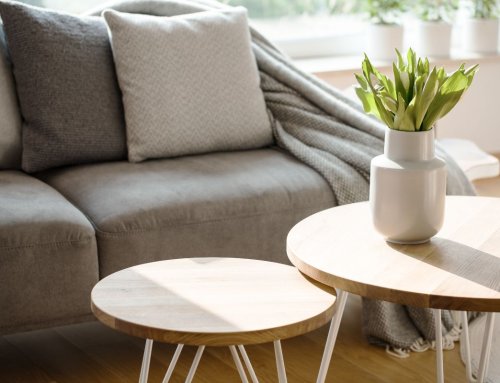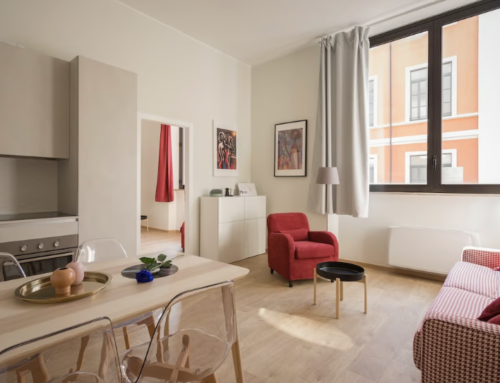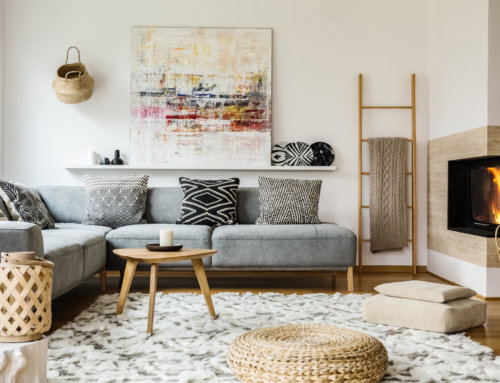Step-by-Step Guide on How to Start a Sober Living Home
According to 2018 research, over 20.3 million people in America over 12 years have had a substance abuse disorder. This number includes 8.1 million people addicted to illegal drugs and 14.8 million alcohol addicts. In order for those people to live healthier lives, it is vital that they have access to safe and supportive environments. This is where sober living homes come into play. So how exactly does somebody go about opening sober living homes for women and men? This article seeks to help you with that. Here we will go into how to start a sober living home.
Read on!
Prior Planning and Analysis
Starting a sober living home is more than an additional stream of income. It’s a step towards helping people start their new sober lives and find a supportive community to help them face life’s challenges together. For this reason, prior planning is essential.
When considering opening a sober living home, you should start by conducting a feasibility analysis to determine the best place to purchase a home. The analysis also helps you select the business model, the support services you will need for the house, and the referral sources. Ensure you create a budget and analyze your financial capabilities.
This is an essential step towards making other important financial decisions, such as renovations, purchasing furniture, and upgrading the house to give it a calm, relaxed, and homey feeling. Below are other essential things to consider during the planning stage:
- Choosing between private funding and obtaining a grant
- The number of beds to buy
- Start-up and facility costs
- ROI forecasting
- Related cost per individual
- Purchasing insurance coverage
Most financial decisions will depend on the number of people you plan on hosting at a time and your geographic location. You can consult a financial planner to help you through essential decisions that will make your sober living home a viable option for many people. This also helps you plan for the long-term success of the house.
Develop a Business Plan
After planning yourself and mentally preparing for your new business venture, it’s time to write a business plan. In the plan, you should detail in writing the type of home you’d like and the number of residents you will allow in the house. You should also write a list of similar sober living homes in the geographic location.
Writing all these details will allow potential lenders and investors to determine whether you have too much competition. It also helps them ascertain your chances of success.
Having less competition means less demand for sober living homes in your area. Hence, you might need to take on fewer residents than you initially planned.
On the other hand, if there are numerous sober living homes, investors would be more willing to work with you and help you set up the house. That’s because many people in your area require your help transitioning into life after rehab programs.
You will also require an IRS Employer Identification Number (EIN). The EIN is a nine-digit unique number that helps the IRS differentiate businesses for tax filing purposes.
It’s quite similar to the Social Security Number, but it’s used for business entities only. You will need the EIN to obtain a license, file tax returns, and open a bank account for your new sober living home.
Determine Your Overhead Costs
When drafting your business plan, you should also consider how you will attract residents to your sober living home and how much you will charge them. Additionally, think about where operational costs are and the type of services you will provide the residents.
Some overhead costs of running a sober living home include:
- Rent
- Sober living home insurance coverage
- Food
- Transportation
- Fitness classes and gym memberships
- Home management
- Out-of-town trips and excursions
Operating a sober living home requires planning and understanding the essential services you will offer. Considering all the above overheads will help you determine the amount of money you will charge your residents. Rent and food are the most expensive expenses for sober living homes.
When the expenses are divided by the number of residents, they will be easier to manage. Suppose you’re also looking to offer low-income people a place on your property. Consider looking into governmental funding assistance or charity organizations.
Determine the Search Criteria for Hiring a House Manager
Most sober living homes are often female-only or male-only. But in some rare cases, you may find homes that accommodate people of all genders. Establishing the type of home you will run will help you determine the kind of people you will accommodate.
This also helps you determine the search criteria when looking to hire a house manager. That’s because you will need the appropriate individual to manage the home, keep it clean and organized. However, if you prefer running a home that accommodates both genders, you should hire two home managers to even the gender ratio.
When looking for a house manager, consider someone who has been on the sobriety journey themselves. Find someone who has been sober for at least 6-12 months. You should also employ them on a contract basis for a limited period.
After the house manager’s contract ends, consider promoting one of the residents to be the new manager after being sober for a specified amount of time. This is a significant step to show the people living in the house that there are many opportunities out there for them. It also gives them a home and motivates them to continue with their journey.
Remember that house managers must be paid. While their daily meals and lodging are free, they are still employees and require payment to handle house management responsibilities.
Research Your State’s Licensing Laws
When starting a sober living home, it’s essential to consider your state’s licensing requirements and accreditations. Your home will be a legal drug or alcohol addiction treatment facility. Hence, you will need licensing to prove to potential residents that your home is legitimate.
Different states have different licensing requirements. For instance, you may not require a license when opening a sober living home in Texas, but you may need one when operating in California. This is because the house may not provide therapeutic and medical services.
However, you can voluntarily obtain a license to protect your residents and employees from discrimination. Because sober living homes are located in suburbs and other residential neighborhoods, most people complain that the presence of recovering addicts in their area makes it unsafe. However, these claims are not accurate, and sober living homeowners need to protect their residents from such discrimination.
According to the Federal Fair Housing Act, it’s illegal to discriminate against individuals because of mental health conditions or disabilities. This also includes recovering addicts.
Laws and Regulations for Operating a Sober Living Home
Sober living homes are protected under the housing discrimination laws. If your sober living house offers medical recovery services such as therapy, you will need to obtain a license from the Department of Healthcare Services.
Below are essential regulations you should consider when starting your sober living home:
- All pets and service animals on the premises must be supervised and vaccinated
- No illegal activities, such as carrying a firearm on the property
- No smoking, drug, and alcohol usage in the home
- The house should have enough supplies, such as sleeping space, furniture, home appliances, and enough space for everyone
- The residence should be well-lit, clean, well-maintained, and safe
- There should be private space for onsite counseling and therapy sessions
- The home should comply with all ADA outlined laws, including easy access to the premises
- You must provide adequate documentation regarding the occupancy as required by the county, city, and federal governments
- Religious leaders who use alcohol and wine in service can only bring four ounces to the premises
Before starting a sober living home, ensure you do some research on your state-specific rules and regulations. Remember that all states have different rules regarding sober living homes. Following these rules will ensure every resident and employee of your sober living house is safe and secure.
You Now Know How to Start a Sober Living Home
After an individual completes their detox and rehabilitation program, returning home may not be an option. That’s because most individuals return to the same environment that pushed them into addiction. This is why sober living homes are an essential part of former addicts’ recovery journey.
If you plan to start a sober living home, know it isn’t an easy process. You will need to plan, write a business plan, and research the different laws and regulations covering sober living homes in your state.
You can also check our site for more resources on how to start a sober living home. We also have resources for recovering addicts to help them find the best sober living home near them.









